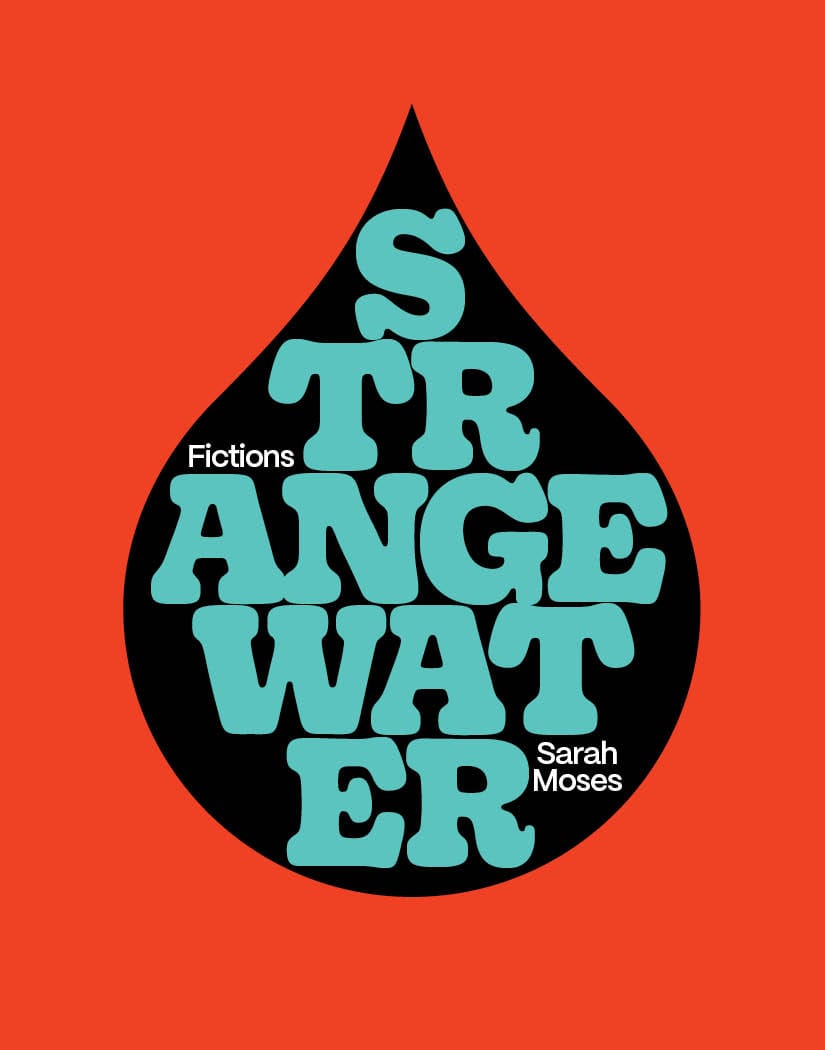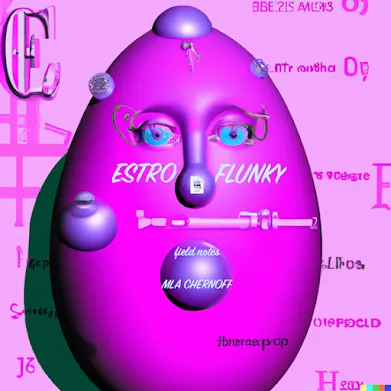Sarah Moses, Strange Water
If you’re a reader that delights in texts that surprise, then Moses’s Strange Water is a book you’ll want to read.

NYRB haul of trendy translations, then you’re in good company with Sarah Moses’s fictions.This review was first published in print by The Malahat Review, no. 229, Winter 2024. Digital and print editions are available for purchase online. Special thanks to Books Review Editor Jay Ruzesky and Editor Iain Higgins for your thoughtful feedback on my drafts. Hyperlinks added below intended for curiosity only. Thank you for reading.
Sarah Moses’s Strange Water, edited by Stuart Ross and published under Guernica’s 1366 imprint, is the experimental microfiction collection that could deconstruct the gentrified publishing industrial complex of CanLit. Hell, it’s bigger than that. If you’re an avid viewer of Booktube or Booktok but don’t recognize Sarah Moses by name, then you’ll most certainly recognize her by her work. She is the award‐winning translator of Agustina Bazterrica’s Tender is the Flesh. If you were looking at book reviews any time in the last four years, you’ll know Tender is the Flesh is unavoidable on social media—although Simon & Schuster (owners of Scribner’s) refuses to print Moses’s name on the cover.
Her collection’s title, Strange Water, appears in the story “Night Garden” and comes from Bazterrica through Moses’s translation of another novel of Bazterrica’s, The Unworthy. She admits in the notes section afterwards that it was in mistranslating a phrase from this work, “The night was closed” instead of “The night was pitch black,” that she was able to re‐open the night.
I first encountered Moses’s work through Stuart Ross, when reviewing his Espesantes in 2018. His three dozen poems there each begin with a line from Moses’s as they say, which came out through Socios Fundadores the same year as Ross published her Those Problems through his Proper Tales Press.
Strange Water feels like prose poetry, but I respect the branding decision to call this work fiction. A lot of the stories centre around framing. Other pages or vignettes in Moses’s work appear as free verse, but what seem at first glance to be couplets are sentences running one‐to‐three lines—more prose than poetry, after all. The label “fictions” itself is experimental because of this fluidity in form. The lexicon is mellifluous, but the structure is unapologetically flash fiction. The content is desultory, jumping from nameless character to nameless character, such as a Buenosairean taxi driver (Moses is a Torontonian who lives in Buenos Aires half the year), old fathers, and even just “we” in the Brazil‐inspired story “Boipeba.” A poem titled “People Who Touch Instruments” organically segues into a poem, “Not What You Should Be Doing,” about Kenny G’s music. This story ends on a “should,” and is followed by a page‐length paragraph titled “Shoulds,” a sort of list poem in prose. Other scenes throughout the work impart an affable humility, such as her repetition of struggling with learning French, something any translator can relate to: “We are beginners. In French as in friendship.”
Toward the end, the book breaks free of the single‐page single‐story structure and details an extended dream sequence that resembles a travelogue. Is the author the main character or has the first‐person singular “I” once again shifted into somebody else’s mouth? It’s nearly cinematographic the way Moses effortlessly donquixotes her protagonists’ voices into the larynx of an unreliable narrator. This story has two I’s, occluded by a “we” that, towards the end, turns into a “you” and another “I.” Taken as a whole, the narrative flow and disjuncture is symbiotic, and it goes beyond the words; it’s deeper than between the lines, it’s between the covers and how the lines themselves take shape on the page.
This isn’t a book I want to give lip service in platitudes to; it’s not a work predominantly steeped in lyricism or explainerism (a work that needs a three‐hour video essay to fully appreciate); it’s one small lore drop for a translator, one big lore drop for translator‐kind. If you’re the sort of jaded academic type that thinks Anne Carson’s If Not, Winter feels a little forced perhaps, or you find no solace in the umpteenth humblebrag on your timeline of someone posting their latest NYRB haul of trendy translations, then you’re in good company with Sarah Moses’s fictions. Their narrative force cuts like a thorn with a scent that lingers, tinged with the undeniable but not unwelcome waft of hemoglobin. The metaphors are translucent, when not modest analogies, bordering on a blurry divide between allegory and reality.
If you’re a reader that delights in texts that surprise, then Moses’s Strange Water is a book you’ll want to read.
Bibelotages Newsletter
Join the newsletter to receive the latest updates in your inbox.



